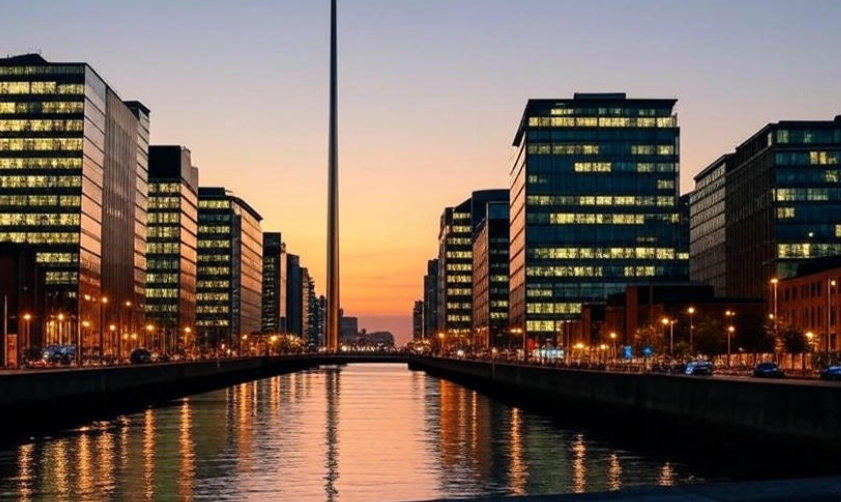Ireland is one of those countries that has become a dream destination for job seekers worldwide 🌍. With its booming tech industry, multinational companies, friendly culture, and beautiful green landscapes, many foreigners look at Ireland as the place where they want to work and grow their careers. But moving to another country for work is not always simple—it requires the right information, planning, and strategy.
In this article, we’ll go through step by step how foreigners can find jobs in Ireland, what industries are hiring, which permits are needed, and what small but important tips can make your job hunt more successful.
Why Ireland is attracting foreign workers
Ireland has a strong economy and has become home to many big companies like Google, Apple, Facebook, Intel, Microsoft, and Pfizer. These giants set up their European headquarters in Ireland because of the business-friendly environment and access to skilled workers. This means more job opportunities not only for locals but also for foreigners.
On top of that, Ireland is an English-speaking country, which makes it easier for many international candidates. It also offers good salaries compared to the cost of living, though you’ll need to plan carefully (we’ll touch on this later).
Types of jobs foreigners usually find in Ireland
Foreigners in Ireland are often hired in certain industries where skills are in high demand. Some of the most common areas include:
| Industry | Examples of Jobs | Demand Level |
|---|---|---|
| Technology | Software Engineers, IT Specialists, Data Analysts | Very High |
| Healthcare | Nurses, Doctors, Care Assistants, Medical Technicians | High |
| Finance | Accountants, Business Analysts, Compliance Officers | High |
| Hospitality | Chefs, Hotel Staff, Restaurant Workers | Medium |
| Education | Teachers, Researchers | Medium |
| Construction | Engineers, Skilled Laborers, Project Managers | Growing |
If you belong to one of these fields, your chances of finding a job in Ireland are much higher.
Work permits and visas you need to know about
Foreigners outside the EU/EEA usually need a work permit to legally work in Ireland. There are a few main types of permits:
-
Critical Skills Employment Permit – For high-demand jobs like IT, engineering, and healthcare. This one is easier to get if your skills are listed on Ireland’s Critical Skills Occupations List.
-
General Employment Permit – For jobs that may not be in critical demand but still available to non-EU workers.
-
Intra-Company Transfer Permit – For people transferring from a branch of a multinational company abroad to its Irish office.
Each of these permits has specific requirements such as minimum salary levels, job offer letters, and sometimes proof that no local candidate was available for the position.
How to actually find job openings in Ireland
Now comes the practical part—where should you even look? There are several ways:
-
Online job boards – Sites like IrishJobs.ie, Jobs.ie, Indeed.ie, and LinkedIn are very popular for job seekers.
-
Company websites – Big employers like Google, Amazon, Microsoft, and Accenture often post jobs directly on their sites.
-
Recruitment agencies – Companies like CPL, Sigmar, and Hays can connect you with employers.
-
Networking – Believe it or not, many jobs in Ireland are filled through personal connections. Attend career fairs, join professional groups, or connect with people on LinkedIn.
A little insider tip 💡: tailoring your CV to Irish standards (short, to the point, and achievement-focused) can make a huge difference.
Challenges foreigners face when job hunting
Let’s be real—it’s not always easy. Foreigners sometimes face hurdles such as:
-
Lack of Irish work experience
-
High competition, especially in Dublin
-
Visa/work permit delays
-
Cost of living being higher than expected
But here’s the good news: Irish employers are very open to international talent, especially in shortage areas. So while there are challenges, there are also many opportunities if you prepare well.
Cost of living vs salaries
Before you move, you should consider whether your salary will cover the cost of living. Dublin, for example, is one of the most expensive cities in Europe. But salaries there also tend to be higher. Here’s a quick comparison table:
| City | Average Monthly Rent (1-Bed Apartment) | Average Monthly Salary (After Tax) |
|---|---|---|
| Dublin | €1,700 – €2,200 | €3,000 – €4,500 |
| Cork | €1,200 – €1,600 | €2,500 – €3,500 |
| Galway | €1,000 – €1,400 | €2,200 – €3,200 |
| Limerick | €900 – €1,300 | €2,200 – €3,200 |
If you’re not tied to Dublin, living in smaller cities can save you a lot of money while still offering good career growth.
Tips to increase your chances of getting hired
-
Make your CV “Irish-friendly” (2 pages max, strong focus on achievements).
-
Write personalized cover letters instead of using a template.
-
Highlight any international experience—you’d be surprised how valuable that is.
-
Show flexibility in terms of location (not just Dublin).
-
If possible, try to visit Ireland for interviews—it shows commitment.

What about language requirements?
Ireland is English-speaking, but accents vary. For most jobs, English fluency is a must. However, having another European language (like German, French, Spanish, or Dutch) can actually make you more employable in Ireland, especially for multinational customer service or sales roles.
Cultural aspects of working in Ireland
Irish workplaces are generally friendly but professional. People value teamwork and communication. Punctuality is important, but at the same time, work-life balance is respected. Don’t be surprised if your colleagues invite you for a pint of Guinness 🍺 after work—it’s part of the culture!
Step-by-step roadmap for foreigners job hunting in Ireland
-
Research which jobs are in demand.
-
Check visa/work permit eligibility.
-
Prepare an Irish-style CV and cover letter.
-
Apply through job boards and company websites.
-
Connect with recruiters and networking events.
-
Prepare for remote interviews (many first interviews happen online).
-
Secure a job offer and then apply for the relevant work permit.
-
Plan relocation and housing.
Common mistakes to avoid
-
Sending generic CVs without tailoring to the job.
-
Applying to jobs you’re not eligible for (e.g., those requiring EU citizenship).
-
Underestimating cost of living in Dublin.
-
Not preparing for cultural fit questions in interviews.
FAQs about finding jobs in Ireland as a foreigner
Q: Do I need a job offer before applying for a work permit in Ireland?
Yes, in most cases you need a confirmed job offer before applying for a permit.
Q: Is it easy to find jobs in Ireland as a non-EU citizen?
It depends on your skills. If you work in IT, healthcare, or other shortage areas, it’s much easier.
Q: Can students work part-time in Ireland?
Yes, international students can work up to 20 hours per week during term time and 40 hours during holidays.
Q: Do companies in Ireland sponsor visas?
Yes, many large companies sponsor work permits, especially in tech, finance, and healthcare.
Q: How long does the work permit process take?
On average, it takes 6–8 weeks, though sometimes longer.
Final thoughts
Finding a job in Ireland as a foreigner is not a walk in the park, but it’s absolutely possible if you plan smartly. Start with the right industry, prepare your documents, apply through the right channels, and be open-minded about location. The Irish job market values skill and determination, and if you bring those two, your chances are strong.
Ireland offers more than just jobs—it offers a lifestyle. With its mix of culture, nature, and global opportunities, it’s a place where careers can really take off 🚀.




